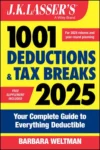Recordkeeping: How, What, and How Long
Keeping good records makes tax preparation easier and ensures that you claim every tax break to which you are entitled. It’s not too late to get your records in order and be prepared for tax season.
1. How to keep records
The tax law doesn’t indicate how you must keep required records for tax purposes. Some suggestions:
- Folders to hold required receipts and other paperwork. Use folders to separate receipts for medical expenses, acknowledgements for charitable contributions, and records for unreimbursed employee business expenses.
- Electronic applications for receipts and paperwork. For example, Shoeboxed enables you to turn paper receipts into secure digital files.
- Mobile solutions. You can use your smartphone to scan receipts and then save them in the cloud for retrieval as needed.
Organize your receipts and other tax records in any way that makes sense to you. If you use a paid preparer to prepare your income tax return, the better your records, the less costly the preparation fee will be.
2. What to save
The tax law requires that certain deductions be backed up with paperwork. For example, you can’t take a charitable contribution deduction for donations of $250 or more without having received a written acknowledgement from the charity. You can’t deduct work-related travel and entertainment costs with receipts and required records noting the date, business purpose, and other information dictated by regulations.
Records include receipts, canceled checks, credit card statements, and other information showing the amount of an expenditure and when it was made.
Here are some examples of information to save:
- Information about basis. When you acquire property, be sure to save the paperwork showing basis (e.g., sales receipt, brokerage statement, information return from an executor on inherited property). If you make capital improvements to property (e.g., adding a new roof or an addition to your home or to rental property), also retain related paperwork. This information is vital when you dispose of the property and have to figure your gain or loss. Without such information, the IRS can assert that your basis is zero.
- Receipts for deductible expenses. These are for medical costs that may be deductible or amounts reimbursed from your health savings account. Keep receipts for miscellaneous itemized deductions (e.g., a bill from your tax return preparer, a receipt for the purchase of Your Income Tax and Monthly Tax Letter).
- Miscellaneous information. Depending on the nature of a particular expenditure, you may want additional paperwork. For example, if you suffered a casualty or theft loss, save police reports, newspaper clippings about the incident, and other evidence of the event that befell you.
3. How long to keep records
Generally, keep your paperwork for as long as the period in which the IRS can examine your return; this is called the statute of limitations. Generally, this is three years from the due date of the return. It can become six years if you omit more than 25% of gross income (including overstating your basis in property so that you understate gain on its sale).
Records related to basis have to be retained for as long as you own the property, plus the statute of limitations.
It is advisable to keep copies of tax returns forever, along with proof of filing. The reason: If the IRS claims that you did not file a return, there is no limitation on the time in which the IRS can audit you. But you don’t need related records beyond the statute of limitations because once you demonstrate that you filed the return, you can’t be audited after the statute of limitations has expired.
Conclusion
Recordkeeping isn’t a fun chore. However, the better your records, the more taxes you’re likely to save and the easier you’ll sleep. You won’t overlook deductions and credits to which you are entitled and you’ll be confident that you have the necessary backup for positions claimed on your return in case the IRS questions your write-offs.
Condemnation
The seizure of property by a public authority for a public purpose. Tax on gain realized on many conversions may be deferred.



